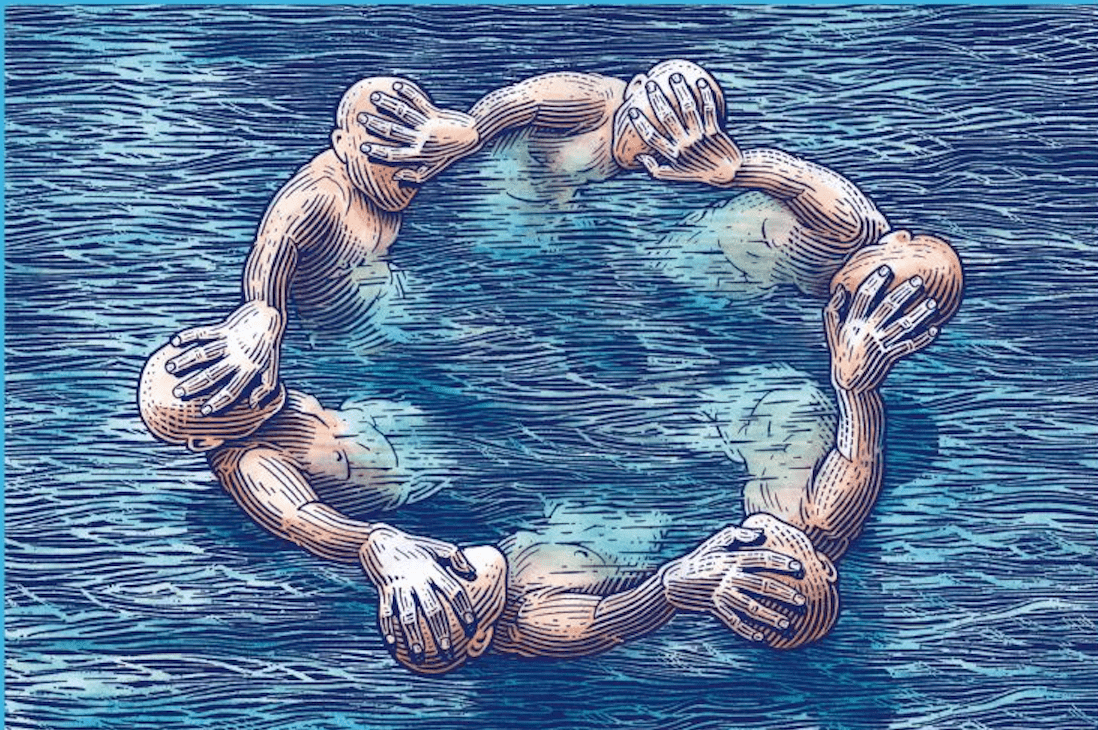Review of Nicholas Parsons’s New Collection of Essays
In his autobiographical poem at the end of Civilisation and Its Malcontents (Hungarian Review, 2019), Nicholas T. Parsons writes, ‘Our voice is still and small/ In other words ignored’. There are surely echoes of Chesterton here: ‘we are the people of England that never have spoken yet.’ And I am sure that Chesterton would have warmed to Parsons’s earlier observation about the bankers who ‘ripped us off/ Then had us bail them out’. It is not, as he says, ‘what’s right or wrong/ But who has got the clout’. Chesterton, writing in 1908 spoke prophetically of the new breed of lords, the new masters of the universe: ‘Lords without anger and honour, who dare not carry their swords./ They fight by shuffling papers: they have bright, dead, alien eyes/ They look at our labour and laughter as a tired man looks at flies/ And their load of loveless pity is worse than ancient wrongs…’
Parsons’s animus is very much against our present day governors, shuffling the papers with which they entangle and entrap us, and also against the veneer of moralism with which they hide their true intent—loveless pity, indeed. Fascinatingly for a British reader, Parsons speaks not just for the people of England, but also for the people of Hungary, who under Viktor Orbán’s democratic government have become the bad boys of the European Union, mainly for standing out against the pitiless pieties of the corporate lords and the Brussels bureaucrats. In a passage which might strike a chord with some Black Lives Matter votaries, Parsons is illuminating about how the depredations (or alleged depredations) of the Fidesz government pale in comparison to the way democracy operates in the USA (pp. 334–335), and also about how apparently virtuous EU member states, such as Austria (pp. 337–339) are not in practice that different from Hungary under Fidesz. In two substantial chapters, Parsons outlines some of the many shifting and evasive top-down arrangements in the EU, including notably over Greece (pp. 106–219). So, assuming that the USA, along with the EU, is the paradigm case of liberal democracy, can we begin to see something in favour of ‘illiberal’ democracy?
Illiberal democracy is a set-up, such as Hungary, in which democracy prevails, but without the stultifying carapace of liberal (or“liberal”) pieties and prejudices. The point here is not precipitately to accede to a wholly negative view of the USA, or indeed of the EU, which, post-1945, does or did have some decent intentions, in particular to convert formerly hostile and war-mongering European nations into peaceful market economies. But talk of ‘illiberal’ democracy, in contrast to liberal democracy, suggests that before condemning others for their supposed defects, one should take a look at oneself, and especially at how oneself might appear to others. If nothing else, Parsons provides an object lesson in what self-scrutiny of this sort might do for some of those who preach virtue to their less fortunate neighbours, and particularly to those neighbours who, against the bien-pensant consensus on globalism (whether banker inspired or left-ideologically motivated) see some virtue in nationhood in general, and their own nationhood in particular.
In an essay discussing the great nineteenth-century Hungarian patriots István Széchenyi and Lajos Kossuth, Parsons interestingly points out that Charles Dickens was an admirer of Széchenyi’s personalist approach to reform, as against Kossuth’s more political temper. In an article he wrote some years after Széchenyi’s death, Dickens applauds the latter’s insistence that a change of heart is what is needed, rather than grandstanding virtue-signalling politics and bureaucratic philanthropy. Dickens quotes with approval the words Széchenyi put into Kossuth’s mouth: ‘I aspired to command others, I could not govern myself. It was my boast to be the benefactor of my country. It is my shame to have been only the puppet of her popular passions’ (Parsons, p. 247). Shades of Dickens’s own excoriating portraits of Mrs Jelleby and Mr Bumble, energetic hypocrites who neglect the real needs of those close to them in their cold-hearted crusades to save Africans in Africa or to reform the indigent poor in their own country! It might be thought that the concept of the indigent poor was an out-moded Victorian concept, gone with the shades of Malthus and Bentham. It has not gone; it has simply morphed into another form. As Parsons points out (p. 156), advocacy of meritocracy—which we are all supposed to believe in under a commitment to so-called ‘equality of opportunity’—has, as its implication, that were such equality actually to be achieved, while those who succeed in the merit stakes will congratulate themselves on what they have deservedly earned, those who fail to rise will equally deserve their fate. Meritocracy—the rule of the deserving—is as harsh a doctrine as any devised in the nineteenth century. It is just what we see when corporate lords and leftist academics condemn those who have the temerity to disagree with them on such matters as Brexit and American elections as ignorant nationalists, as well as probably racist and certainly deplorable.
On page 79, Parsons tellingly quotes Roger Scruton: ‘sentimental people respond more warmly to strangers than to those who are close to them, and are more heatedly concerned by abstract issues which demand no personal sacrifice, than by concrete obligations that cost time and energy to fulfil.’ This takes us close to the heart of what Parsons sees as the malcontentedness of civilization. Particularly since the advent of the welfare state—part of what Chesterton was inveighing against in 1908, though without full awareness of where it might lead, we now live in a world where politics is ruled by appeal to abstract issues and their impersonal administration. For those professing these abstract causes there are careers, honours, and riches to be gained, all the while appearing sea-green incorruptibles. Those who disagree are made to look mean, selfish, ungenerous and no doubt uneducated to boot, given that education, and not just state education, is largely predicated on the propagation of these abstract principles and causes. A case in point here is immigration.
As Parsons observes, ‘migration “experts” believe that settled societies and cultures can be manipulated or diluted at will to suit an ideological or utilitarian programme.
The views of those on the receiving end of this are not required’ (p. 141). Such attitudes are shared by those running corporate giants and international banks, as well as by doctrinaire leftists, globalization being remunerative as well as virtuous. Underlying them is often the notion that Europeans today should atone for the excesses of imperialism and colonialism in the past. Parsons finds it mysterious why a working-class family in Sunderland should be made to atone for the British Empire, before noting that Hungarians are ‘unimpressed’ by this type of posturing, seeing Germany’s attempt to bully them over migration as ‘human rights imperialism’. Advocacy of unlimited migration (‘no borders’) is something of a litmus test in the present day world, which Parsons characterizes as an ‘environment hostile to personal authenticity and dominated by branded intellectual or cultural goods, empty slogans, aggressive marketing and invasion of personal privacy’ (p. 159). He goes on to quote approvingly from a recent book by an Austrian writer, Alfred Goubran: ‘The protagonist of this controlling world is the identity-free man who keeps himself in power by means of rules and regulations.’ This should remind us that state regulation is as effective a means for an elite to subjugate a population as are nationalization or the exercise of naked power. Unlike these other two routes to control, regulation is also likely to be welcomed by large corporations, as it tends to make things more difficult for smaller and less bureaucratically upholstered enterprises.
There is in fact nothing new in the protagonist of the controlling world vesting himself in a cope of impeccably liberal abstract principles. As Maurice Cowling showed in Mill and Liberalism as long ago as 1963—to the horror of the left-liberal intelligentsia of his day—J. S. Mill’s liberalism could, and indeed should, be seen as way of side-lining all those who did not share Mill’s impeccably rationalistic progressivism and anti-clericalism. His celebrated advocacy of a diversity of opinion was not a plea for diversity simpliciter. The diversity of thought Mill wanted was all one way—a means of drawing people away from convention, habit, custom, and public opinion, all of which he saw as inherently oppressive, and which could be torn apart by the sort of rationalistic argumentation he delighted in.
Despite appearances, Mill was not really against consensus: he was very much in favour of it, providing it was a consensus directed by a suitably progressive clerisy, by people like him, in fact. As Cowling points out, fundamental moral and political commitments are not arrived at by a process of rational argumentation or critical self-examination. In a sense, they are too deep for that, a matter rather of an intuitive and pre-rational sense that, say, a human being before me is qualitatively different from a stick or a broom—even, perhaps especially, if that human being is a miserable, undeserving beggar. If fundamental commitments are too deep to be supported by discursive rational argumentation—which does not mean they are irrational—they can be undermined by the type of endlessly reason-seeking argument and negative challenge Mill wanted us to engage in.
Hence the progressive’s disdain for those who hold to ancestral prejudices about the nation, the family, the sanctity of marriage, birth, breeding, honour, and discipline. As George Orwell pointed out in ‘Inside the Whale’ (p. 127), all these things can be turned inside out in three minutes by ‘anyone of ordinary education’, assuming they had been educated by the likes of Mill. But this does not mean that anyone of ordinary education is right, or the pre-judgement wrong, nor does it mean that the Mill-inspired critical thinker is going to show greater wisdom morally, politically, or culturally. But it does tell us why the academic and the intellectual is likely to stand on one side on all these issues, and why he or she is likely to deplore what will be seen as the unenlightened nature of his or her opponent.
Hence, as Parsons so persuasively demonstrates in his book, liberalism—the Millian liberalism of our present day elites— is in fact anything but liberal. They shuffle their papers without laughter or pity. Talk of diversity notwithstanding, they have no truck with any current of feeling or opinion which would challenge their hegemony. Neither do they show any understanding of the deep feelings and loyalties of the ordinary, unenlightened man or woman.








